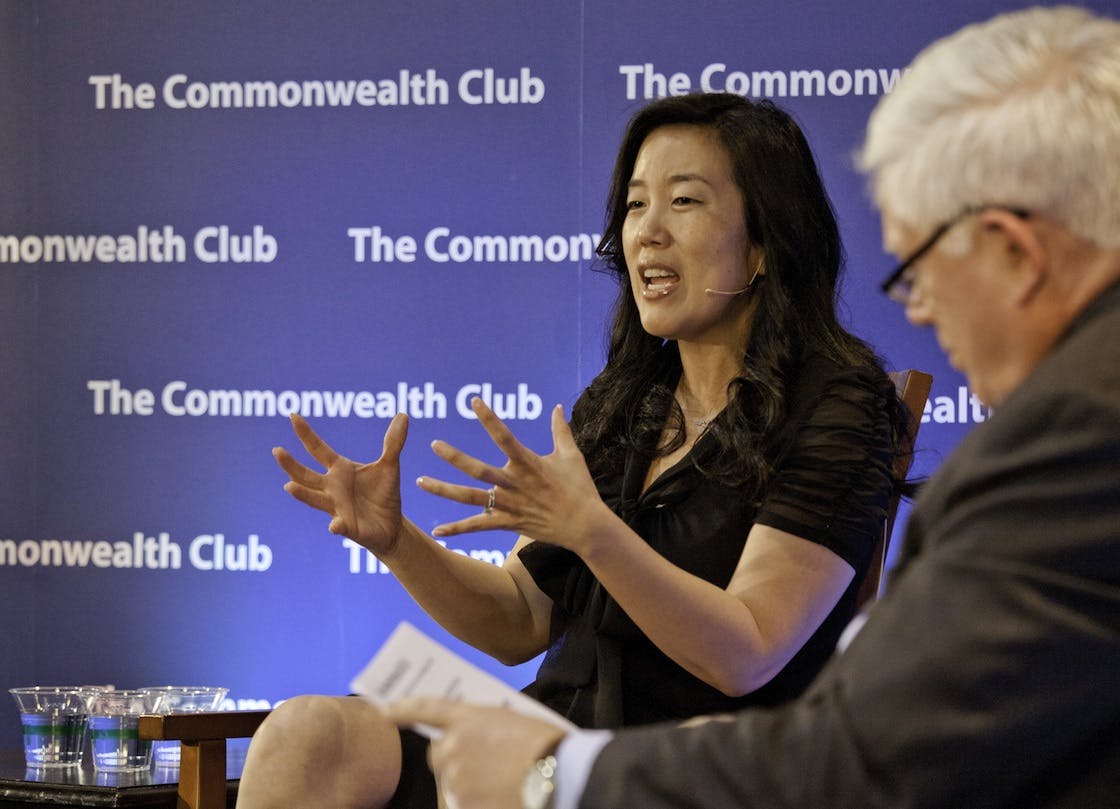
This Op-Ed About Michelle Rhee Misses the Point
I came across this op-ed piece in the Washington Post in my reading list today, and I was so struck by how mistaken it was. So here’s a point-by-point rebuttal.
That would be the case if any investigators – news reporters, the Education Department, D.C.’s Office of the State Superintendent or the firm hired to investigate the cheating – had found that Rhee or top deputies encouraged cheating. That happened in Atlanta. But to date, that has not been found in the District. More likely, Rhee wasn’t aggressive enough in investigating cheating. But think back to the Rhee years. Her biggest controversies arose from being too tough on teachers. Would her detractors have applauded yet another attack on teachers – this time for cheating? Not likely.
No, she wasn’t aggressive enough in investigating cheating; that’s the whole problem. I’m not sure at what point she decided that she wasn’t going to do something because her detractors said she shouldn’t (or how that at all matters), but if she did, there’s a lot of other things should would be doing differently. I don’t think she’s ever acted based on what her detractors said, and as a woman of principles (regardless of how you feel about those principles), she shouldn’t. I’d like to assume that her principles include honesty but it doesn’t seem like that’s the case.
Most of the media coverage over cheating ignores something fundamental: The controversy is over cheating on the D.C. CAS (Comprehensive Assessment System), the local exam whose results are used to reward or punish teachers and principals. This test has nothing to do with the federal exam used to compare achievement by D.C. students to similar urban students around the country. That test, the National Assessment of Educational Progress (NAEP), is the so-called “gold standard” of testing, and it showed that D.C. students made unique progress during the Rhee years.
This is the first time the writer really misses the point – her whole legacy is hinged on the fact that the process of handing out money based on these local tests is flawed. It doesn’t build a system that encourages collaboration between teachers, it turns them into competitors for scarce resources, and it incentivizes cheating by providing a direct link between resources and test scores, and all these activities harm the learning of students. THAT’S the problem – the system isn’t effective for the goals a school system is trying to achieve, and her whole reform model, her legacy, hinges on that system.
That’s why she doesn’t investigate it – not because she’s concerned about what her detractors think, but because she realizes her current platform gets undermined when she investigates and finds out that there was, in fact, cheating on that particular test.
I don’t know enough about the NAEP test to assume, as this writer does, that it’s uncheatable and a “gold standard.” I will however point out the fallacy of attributing short-term score gains to a single or set of policies, the way he does (which is a much bigger, more statistical can of worms I won’t go in to – read ShankerBlog if you want to know more).
But was holding teachers accountable for their students’ education (which, as the theory goes, encouraged cheating) one of her mistakes? To weigh that question, let’s translate this into a journalistic equivalent. Imagine an aggressive editor launching a new magazine. The editor relentlessly presses her young writers to produce unique articles on a crazy-fast deadline. One day, a writer gets exposed for taking a shortcut via plagiarism. Who’s at fault, the cheating writer or the aggressive editor?
Both are, and to fail to place the blame of cheating partially on the system that engenders it is ridiculous. People’s behaviors are incentivized by the systems in which they participate, and to not discuss the role the system plays completely misses the point. If we’re going with this sort of reductionist logic, then it’s all students’ fault when they don’t learn anything. And that’s patently absurd.
At first, Rhee’s reforms appeared to be working. Low-income black students really did start to do better. As it turns out, the many D.C. teachers who for years blamed the shortcomings of their students entirely on their impoverished home lives were only partly right. Schools, at least those that know how to promote effective teaching, can make a difference.
While I wasn’t there, so to speak, I’m inclined to think this is a major strawman. No teacher I’ve read has ever tried to place all the blame on poverty. Schools CAN make a difference; teachers CAN make a difference, and they do all the time. But to do the opposite (place all the blame on the teacher) makes the same mistake, and it doesn’t seem like Rhee and the edreform crew want to accept the role that poverty plays, focusing all their reform efforts on teacher evaluations and merit pay without considering how these systems affect things.
So that’s the issue – these are systems, and parts of systems, and they have effects on the way people act within those systems, and not looking those systems is a mistake.

